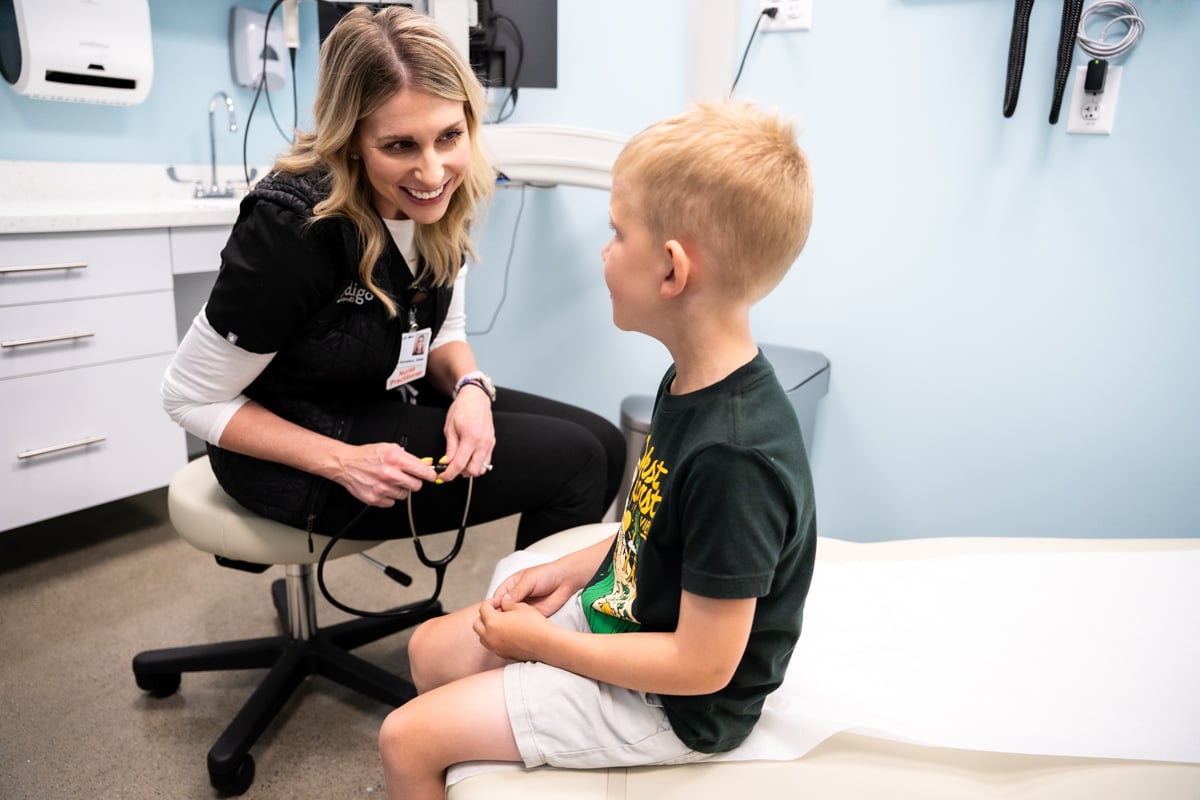Just like sturdy boots and the right backpack, a well-stocked first-aid kit should be an essential part of your outdoor adventure—especially if you're a backpacker who prefers the trail less traveled.
Before you venture out, make sure you're prepared in case an illness or injury happens far from medical care.
What are the most common backpacking injuries?
Out in nature, some things just can't be avoided, like a misstep on a root-bound trail or a run-in with poison ivy. Even the most experienced backpackers are at risk for injuries.
The most common backpacking injuries include:
- Allergic reactions, including pre-existing allergies and reactions to poison ivy or other toxic plants
- Blisters
- Burns
- Cuts and abrasions
- Fractures
- Insect bites and stings
- Soft tissue injuries, such as knee and ankle sprains
- Sunburn
What should a backpacking first-aid kit contain?
A backpacking first-aid kit should include a wide assortment of items. Use the following buckets as your guide:
- Injury care:
- Adhesive bandages of assorted sizes to seal cuts and wounds
- Butterfly bandages to help close small wounds and cuts.Gauze pads of various sizes to clean wounds and apply ointments.
- Paracord to create a splint for broken bones or use as a tourniquet.
- Tweezers to remove splinters and ticks.
- Rolled gauze to wrap wounds and other injuries.
- Safety pins to secure bandages.
- Splints (including SAM and finger splints) to immobilize bone and soft tissue injuries.
- Sports tape to prevent blisters, protect wounds and stabilize muscle and joint injuries.
- Medications and treatments:
- Antibacterial ointment, such as Neosporin, Bacitracin, Polysporin or Gemolene, to help prevent infection.
- Allergy and cold relief medication (antihistamines), such as Benadryl or Nytol, to relieve allergy, hay fever and common cold symptoms.
- Antiseptic wipes to disinfect wounds, cuts and scrapes. Pro tip: To avoid the sting, seasoned trekkers recommend BZK wipes that contain antiseptic benzalkonium chloride solution. (Alcohol wipes will still do the trick.)
- Aspirin to treat fever, pain and inflammation or to stop an impending heart attack.
- Insect bite/sting pads or wipes that contain some form of antiseptic, analgesic, anesthetic or antipruritic to reduce irritation and inflammation.
- Pain relief treatment, including acetaminophen (Tylenol), ibuprofen (Advil) or naproxen (Aleve).
- Prescription medication. Just like clean underwear, it's always a good idea to bring extra.
- Tools and supplies:
- Knife/multitool for cutting medical tape, bandages or clothing.
- Medical gloves for sterilization and treating someone else's wound on a group trip.
- Medical scissors to cut dressings and remove clothing from injured areas.
- Non-essential extras. Depending on the nature and duration of your trip, you may want to add more to your first-aid kit. Here are a few additional items you might want to pack in:
- Emergency blanket
- Anti-diarrheal medicine
- Aloe vera gel
- Thermometer
- Antifungal foot powder
- Throat lozenges
- Small mirror
- Antacids
- Oval eye pads
- Irrigation syringe for wounds
Should I buy a backpacking first-aid kit or make my own?
You can either purchase a prepackaged first-aid kit or make your own.
- Commercial first-aid kits are a convenient option and contain items to treat most minor injuries. You are, however, limited to what's included—which may not be everything you need—and the kits can be pricey.
If you do opt for pre-built, choose a kit specially designed for backpacking. (We're not here to dole out retailer recommendations, but REI is a great resource for first-aid kits that have been vetted by medical professionals.)
- DIY first-aid kits. If you opt to do it yourself, it may take some time and planning to build your first-aid kit. But in the end, it will be customized to meet your specific needs.
- Gather and group items based on the categories listed above.
- Use storage bags for each grouping and label accordingly. (If you have a headache, you won't want to search through bandages, splints and gloves to find the ibuprofen.)
Don't forget to replenish and replace
Don't wait until you're in the backcountry to discover you're out of butterfly bandages or your allergy medication is past its prime. Make a plan to take stock of what's in your kit and replenish and replace items as needed.
- Keep a list of everything that should be in your fully-stocked first-aid kit and cross-check it against your supplies.
- Check inventory before each outing.
- Create annual, biannual or seasonal reminders in your phone or on your calendar to check expiration dates and ensure sterile items are sealed. Replace expired or damaged items.
- To avoid waste, transfer items with a limited shelf life to your home medicine cabinet to ensure they're used before their expiration date.
Indigo Online Care is for adventurers
Your well-appointed first-aid kit should do the job when minor injuries and illnesses happen. But even the most seasoned and prepared backpackers may need medical attention.
Fortunately, Indigo Online Care makes it easy to get the care you need from wherever you call basecamp. Our providers treat a variety of minor illnesses and injuries, from rashes and allergies to sprains and strains.
Choose from two easy online options:
- Video Visits. Meet face-to-face with an Indigo provider. Visits are typically 15-25 minutes and are available 8 am to 8 pm every day, including holidays.
- E-Visits. Start a visit anytime, 24/7. Just complete a quick online questionnaire and an Indigo provider will get back to you within 24 hours with a diagnosis and treatment plan.
And if you need care once you're out of the woods, we have Indigo Urgent Care locations across Puget Sound and Spokane. Our providers are available to treat most minor illnesses and injuries. We even have onsite digital X-ray services (and a pair of crutches) if your backcountry adventure takes an unexpected twist. Simply schedule an appointment online or walk-in.


